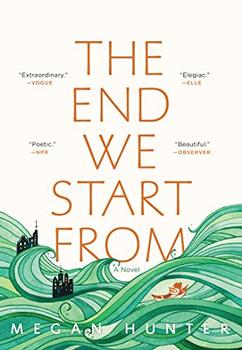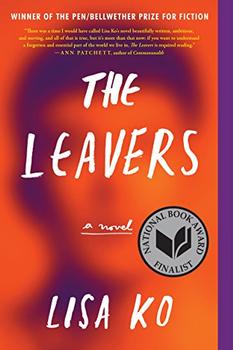Summary | Excerpt | Reading Guide | Reviews | Beyond the book | Read-Alikes | Genres & Themes | Author Bio

Shanthi Sekaran's novel is the compelling and heart-rending story of two strong women who fiercely love the same little child—the "lucky boy" of the title. It's told in third person from three viewpoints: that of eighteen-year-old Soli who makes her way illegally across the border from Mexico to her cousin's house in Berkeley, California; and of Kavya, and her husband Rishi, both second-generation south Asian Indians living in Berkeley. Along with the mother-child bond, the theme of legal and illegal immigration plays a large role in the novel, as does the ethics of foster care and adoption.
We first meet Soli in her tiny native village outside of Oaxaca waiting for the man who is going to help her get across the U.S-Mexican border. The trip does not go as planned. Soli ends up traveling with a group of tough, young men all trying to make it to the United States. During the journey she falls in love one of them and loses her virginity. But the disturbing details of her journey aren't revealed until later in the story where they are doled out slowly, haunting her with the brutality of the memories and giving her nightmares.
Meanwhile, we meet Kavya who works as a cook at a sorority in Berkeley. Kavya is consumed with longing for a child but hasn't been able to conceive. In lyrical prose, the author tells us that, "She'd come to Berkeley to find herself, but found that her self was not enough. She wanted a self of herself. She wanted a child…she began to really look at children for the first time. Babies. Her chest ached at the sight of them. Her hands grew restless, like a smoker's. She wanted to press one to the beat of her heart, feel the sweet warm weight of a baby in her arms."
Kavya's husband, Rishi, works in Silicon Valley as a renewable energy consultant for a trendy company called Weebies, an Internet super-site that has cornered the market on baby and children's gear. The company also provides a social networking platform for parents as well as articles designed to guide them in their efforts to bring up perfect, brilliant children.
Kavya's early chapters, which show her increasingly desperate for a child, alternate with those told from Rishi's point of view that describe the stress that trying to conceive puts on the marriage. "The bed in which they'd sleep—or not sleep—wasn't neutral territory. It was a petri dish, acidic with expectation, doomed even before its covers were thrown back." Finally, after a series of failed attempts, the couple reluctantly decides to try being foster parents to an infant with the possibility of adoption.
Once Soli makes her way across the border and to Berkeley where her cousin Silvia runs a housekeeping business, she cleans house for a well-to-do family with a toddler. Soli is taken with all the apparent wealth of this new place, California—such a contrast to the world she's come from. The author uses the opportunity for social commentary; for instance, Soli's cousin tells her nobody really has money, even the people who seem to, don't, because their houses are vacuum cleaners that suck up all their income. Soli protests that at least they have homes, but Silvia counters, "They don't have homes, they have mortgages." Then she tells Soli, "And don't look so worried. You'll never have one."
When Soli discovers that she's pregnant, she is taken under the "wing" of her disorganized, well-meaning, but somewhat patronizing employers, and offered paid maternity leave. Once her son Ignacio is born, they have her come back as a nanny for their daughter. For Soli, motherhood is deeply fulfilling and a cure for her sense of impoverishment; Ignacio becomes Soli's life, her reason for living, her everything. Then, through an unfortunate mishap that is out of Soli's control, she is arrested and sent to immigration detention while her son is put into child protective services.
The author writes from all three points of view, especially the two women's, with great sensitivity and nuance. One of the more moving scenes is when Kavya and Rishi are taken to a foster care group home. There is an authentic and beautiful rush of emotion when Kavya meets Ignacio and falls in all-consuming love with this baby. All her maternal instincts kick in. Once he is in their care, Kavya begins thinking of herself as Ignacio's mother and Iggy as her son. And yet, as readers, we are constantly aware that this is not Kavya's child, that Ignacio has another mother who longs to be reunited with her son.
One of the best ways an author can create tension is when the reader watches characters make choices and plans, and harbor beliefs that we know are going to be disastrous, which is exactly what Sekaran has done in this story. While Kavya and Rishi begin to build a new family life around the boy they call Iggy, Soli endures brutal abuse, humiliation and violation of basic human rights in detention; it is almost unbearable to witness the injustice of what is happening to her on top of any parent's worst nightmare—losing a child and being powerless to get him back. At times, it was hard for me not to see Kavya and Rishi as villains, but at the same time, it was heartbreaking to watch them become a loving family, wondering if and when it was all going to fall apart.
The alternate points of view keep the cast of characters and their separate stories rotating at a steady and even pace for the first two-thirds of the novel, intensifying later to nail-biting tension with hair-raising stakes. Towards the end, pages fly as the story careens towards a heartbreaking but emotionally satisfying resolution. I highly recommend Lucky Boy to readers who enjoy stories with complex characters, moral dilemmas, and social commentary, well told in beautiful prose. This would be a fantastic book club choice with much to discuss.
![]() This review was originally published in The BookBrowse Review in February 2017, and has been updated for the
September 2017 edition.
Click here to go to this issue.
This review was originally published in The BookBrowse Review in February 2017, and has been updated for the
September 2017 edition.
Click here to go to this issue.

If you liked Lucky Boy, try these:

by Megan Hunter
Published 2018
A searing original, a modern-day parable of rebirth and renewal, of maternal bonds, and the instinct to survive and thrive in the absence of all that's familiar.

by Lisa Ko
Published 2018
Finalist for the 2017 National Book Award for Fiction.
Named a Best Book of 2017 by NPR, Entertainment Weekly, the Los Angeles Times, BuzzFeed, Bustle, and Electric Literature, Lisa Ko's debut novel is essential reading for our times.
Your guide toexceptional books
BookBrowse seeks out and recommends the best in contemporary fiction and nonfiction—books that not only engage and entertain but also deepen our understanding of ourselves and the world around us.